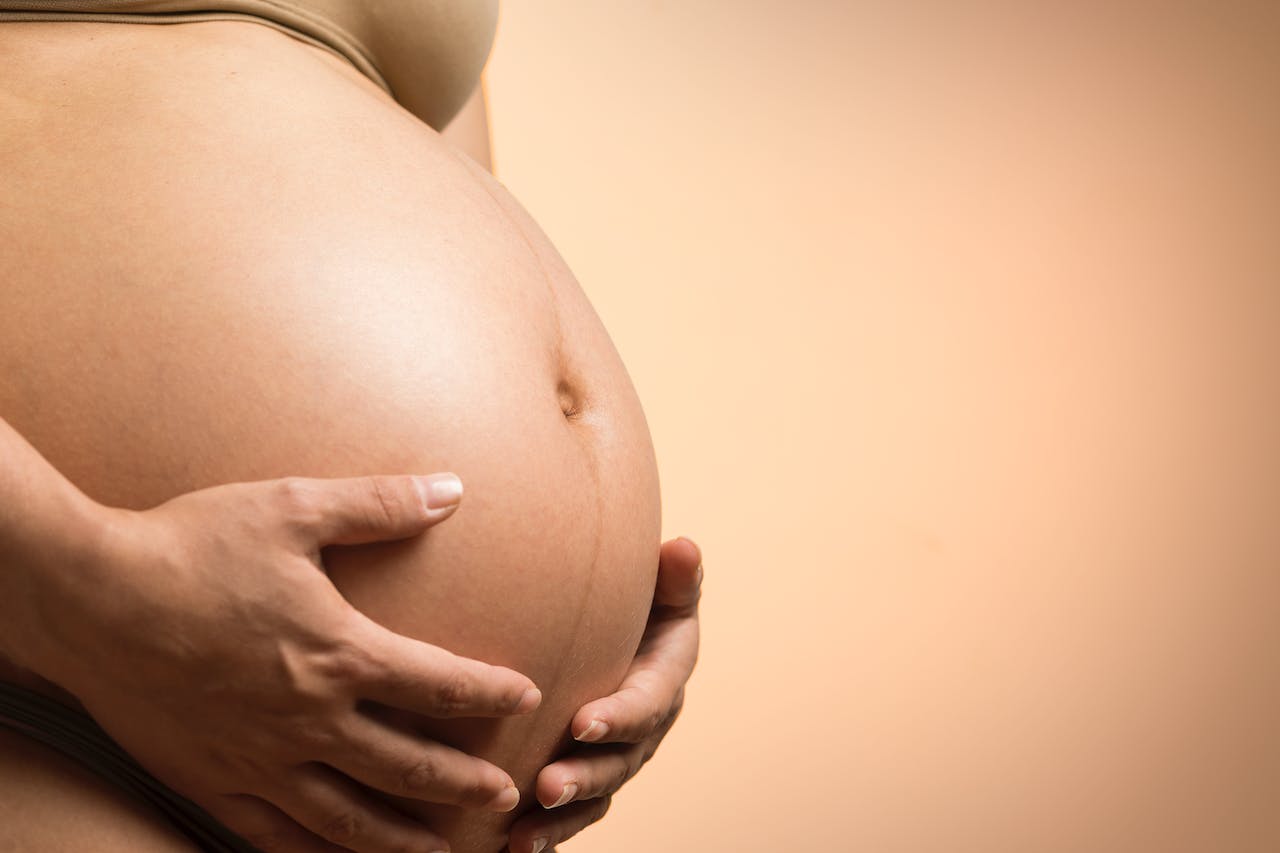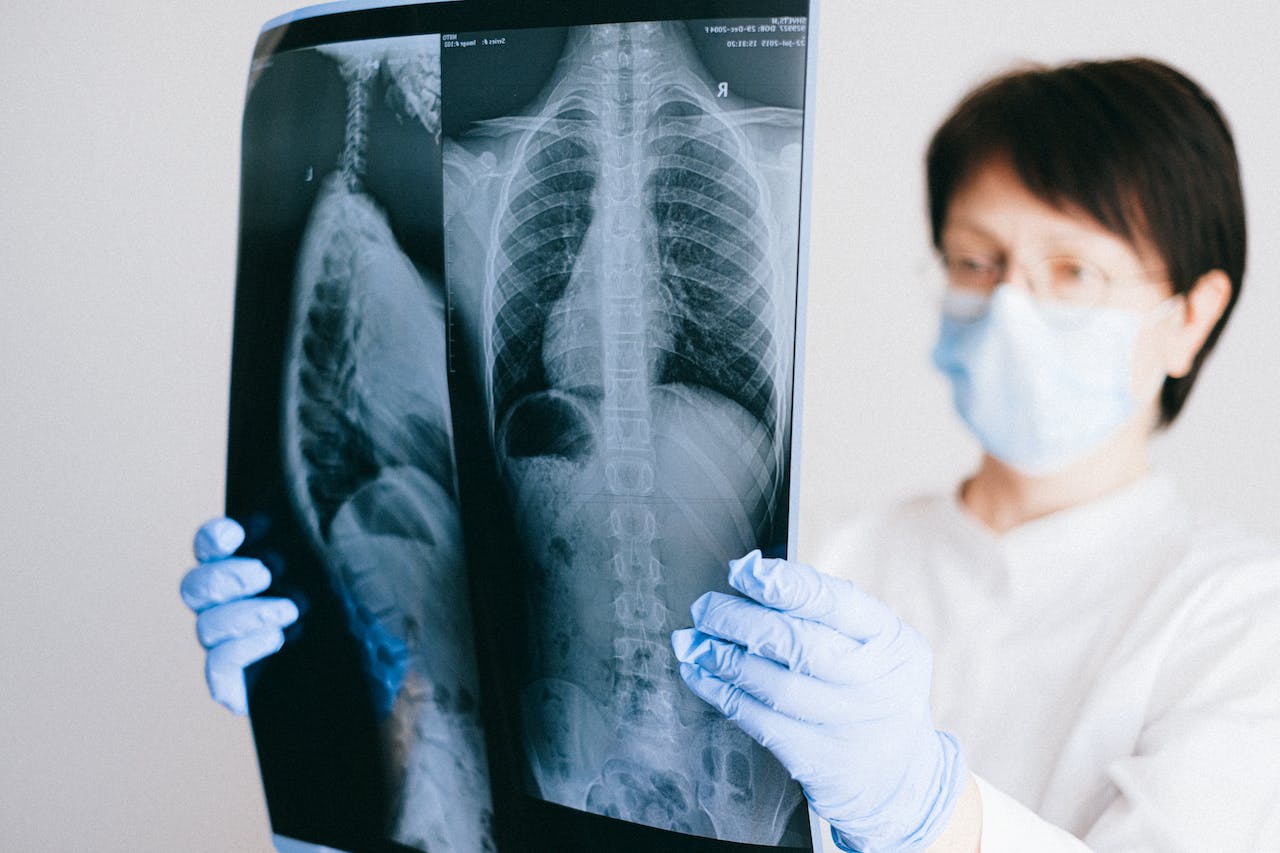Hypertension, or high blood pressure, is a common health issue that affects approximately 10% of pregnancies worldwide. According to the World Health Organization, hypertension can significantly increase the risk of complications both for the mother and baby during pregnancy.
Being diagnosed with hypertension when pregnant doesn’t necessarily mean you had high blood pressure before you were pregnant, or that you will have it after giving birth. It’s crucial to understand that pregnancy-induced hypertension is a distinct condition that requires special attention and management.
In this article, we will explore what hypertension in pregnancy means, its symptoms, the recommended blood pressure levels during pregnancy, and the guidelines set out by the National Institute for Health and Care Excellence (NICE) for managing hypertension during pregnancy.

What is Hypertension in Pregnancy?
Understanding hypertension during pregnancy is crucial for ensuring the health and safety of both the mother and baby. But what is hypertension in pregnancy? First and foremost, hypertension when pregnant is typically diagnosed when a woman’s blood pressure readings exceed 140/90 mmHg during her pregnancy.
There are several types of hypertension that can occur during pregnancy:
- Chronic Hypertension: This is high blood pressure that was present before pregnancy or that occurs before 20 weeks of pregnancy. Women with chronic hypertension are at higher risk of developing preeclampsia during their pregnancy.
- Gestational Hypertension: This is high blood pressure that develops after 20 weeks of pregnancy in women who previously had normal blood pressure. Gestational hypertension can lead to preeclampsia and other complications if not carefully managed.
- Preeclampsia: This is a serious condition characterised by high blood pressure and signs of damage to another organ system, often the liver and kidneys. It usually begins after 20 weeks of pregnancy in women whose blood pressure had been normal.
The exact cause of hypertension in pregnancy is unknown. However, some factors may increase the risk of developing the condition, such as pre-existing hypertension, kidney disease, obesity, being over the age of 35, or expecting more than one baby.
Managing hypertension when pregnant involves regular prenatal checkups, a healthy diet, regular physical activity, and in some cases, medication. After the baby is born, high blood pressure levels usually return to normal levels, but women with gestational hypertension are at risk for hypertension and cardiovascular disease later in life.

Symptoms of High Blood Pressure When Pregnant
If you are experiencing high blood pressure when pregnant, symptoms can vary significantly and some women may not experience noticeable symptoms at all. However, when symptoms do occur, they can include:
- Severe headaches: These are often different from normal headaches. They may be persistent and are not relieved by over-the-counter headache remedies.
- Changes in vision: This could include temporary loss of vision, blurred vision, or sensitivity to light. Some women also report seeing flashing lights or spots.
- Abdominal pain: Usually felt in the upper right part of the abdomen or stomach. It may also feel like heartburn.
- Nausea and vomiting: Especially if these symptoms are new and severe, and particularly in the second half of pregnancy.
- Shortness of breath: This symptom can occur due to the reduced amount of space available for the lungs to expand as the baby grows. However, it can also be a sign of high blood pressure.
- Decreased urine output or not urinating at all: This could indicate that the kidneys aren’t functioning properly.
- Oedema (swelling): While mild swelling in the hands and feet is common in pregnancy, sudden or severe swelling in the face or hands can be a sign of preeclampsia, a severe form of high blood pressure in pregnancy.
- Too much protein in your urine (proteinuria), or other signs of kidney problems.
It’s crucial to note that these symptoms could point to other conditions or even be regular pregnancy discomforts. But because they can also indicate high blood pressure, it’s important to take them seriously and contact your healthcare provider if you experience any of them.

Is it Possible to Have Hypertension When Pregnant Without Symptoms?
Yes! High blood pressure is often referred to as a “silent killer” because it typically doesn’t cause noticeable symptoms until it has reached a severe or life-threatening stage. This is also true for hypertension when pregnant.
Many women with high blood pressure when pregnant don’t experience any clear symptoms, which is why regular prenatal check-ups are crucial. During these visits, healthcare providers measure blood pressure levels to ensure they are within a healthy range.
Without these regular checks, hypertension in pregnancy could go unnoticed and untreated, potentially leading to complications like preeclampsia, preterm birth, or low birth weight for the baby. Therefore, even if a pregnant woman feels fine, it’s crucial to maintain regular prenatal appointments for ongoing health monitoring.
Hypertension Pregnancy NICE Guidelines
The National Institute for Health and Care Excellence (NICE) provides detailed guidelines for managing hypertension when pregnant. Here are some key points from these guidelines:
- Diagnosis: Hypertension in pregnancy is diagnosed when a woman’s blood pressure is 140/90 mmHg or higher.
- Antenatal Care: Women with hypertension should have more frequent antenatal visits to monitor their blood pressure.
- Medication: If lifestyle changes aren’t enough to control blood pressure, medication may be needed. The first-line antihypertensive drugs recommended by NICE are labetalol, nifedipine MR, and methyldopa.
- Prevention of Preeclampsia: Low-dose aspirin (75 mg per day) is recommended from the 12th week of pregnancy until the birth of the baby to prevent preeclampsia in women with high risk.
- Postnatal Management: Women who have had hypertension during pregnancy should have their blood pressure monitored postnatally for at least 2 years, as they are at increased risk of developing chronic hypertension.
- Intrapartum Care: During labour and birth, women with hypertension should have continuous monitoring of blood pressure.
Whether you are a patient or healthcare professional, it is important to remember that healthcare professionals are obligated to provide clear information about the risks, benefits, and rationale of the recommended options to pregnant women with hypertension. This helps in shared decision-making and ensures that the care provided aligns with personal preferences and values.
For more detailed information, visit the NICE guidelines on their official website.

What Should Your Blood Pressure Be When Pregnant
Normal blood pressure during pregnancy is generally considered to be around the same as a healthy blood pressure outside of pregnancy, which is a reading of less than 120/80 mm Hg.
However, blood pressure can naturally fluctuate during pregnancy due to hormonal changes and the increased amount of blood in your body. It’s common for blood pressure to decrease in the first half of pregnancy and then gradually increase to reach pre-pregnancy levels in the third trimester.
If a pregnant woman has a systolic (top number) blood pressure of 140 mm Hg or higher, or a diastolic (bottom number) blood pressure of 90 mm Hg or higher, she may have hypertension or high blood pressure.
Remember, regular prenatal check-ups are crucial for monitoring blood pressure throughout pregnancy and ensuring the health and safety of both mother and baby. If you have concerns about the potential of hypertension when pregnant, it’s important to discuss them with your healthcare provider.
Complications and Risks Associated with Hypertension in Pregnancy
As we’ve touched on in this article, hypertension when pregnant can pose several risks to both the mother and the baby. These complications can range from mild to severe and can have long-lasting effects on a woman’s health.
For the mother, hypertension increases the risk of:
- Preeclampsia: This is a serious pregnancy complication that involves high blood pressure and damage to another organ system, often the liver and kidneys. It usually starts after 20 weeks of pregnancy in women whose blood pressure had been normal.
- Eclampsia: This is a severe form of preeclampsia that leads to seizures in pregnant women.
- HELLP syndrome: A rare but life-threatening liver disorder that stands for Hemolysis, Elevated Liver enzymes, and Low Platelets.
- Cardiovascular disease: Women who have had preeclampsia have three to four times the risk of high blood pressure and twice the risk of heart disease and stroke later in life.
- Kidney damage: Hypertension can cause damage to the kidneys, leading to reduced kidney function.
For the baby, hypertension in the mother increases the risk of:
- Preterm birth: High blood pressure may lead to early delivery, which can cause serious complications.
- Low birth weight: The baby may not grow to full size in the womb due to insufficient nutrients and oxygen.
- Stillbirth: In severe cases, hypertension can cause the baby to die before birth.
Therefore, it’s essential to manage hypertension during pregnancy to minimise these risks. Regular prenatal check-ups, a healthy lifestyle, and medication (where necessary) can help manage blood pressure levels and ensure a safer pregnancy.

Managing Hypertension When Pregnant
Lifestyle modifications can greatly assist in managing hypertension when pregnant. Here are some recommended changes:
1. Healthy Eating: A balanced diet rich in whole grains, fruits, vegetables, lean proteins, and low-fat dairy can help manage blood pressure. It’s also essential to limit the intake of processed foods, which often contain high levels of salt and sugar.
2. Regular Exercise: With the approval of a healthcare provider, pregnant women should aim for moderate-intensity exercise for at least 30 minutes most days of the week. This could include walking, swimming, or prenatal yoga.
3. Weight Management: Maintaining a healthy weight during pregnancy can help control blood pressure. The amount of weight a woman should gain during pregnancy depends on her pre-pregnancy weight, so it’s important to discuss this with a healthcare provider.
4. Limit Sodium: Too much sodium can increase blood pressure. Aim to consume no more than 2,300 mg of sodium per day, and try to select low-sodium options when available.
5. Avoid Alcohol and Caffeine: Both alcohol and excessive caffeine can raise blood pressure, so it’s best to avoid them.
6. Stay Hydrated: Drinking plenty of water can help maintain a healthy blood volume and thus support healthy blood pressure levels.
7. Rest and Relaxation: Adequate sleep and stress management techniques such as meditation, deep breathing, and prenatal massage can help keep blood pressure in check.
Remember, every pregnancy is different, and what works for one person might not work for another. Always consult with a healthcare provider before making any significant changes to diet or exercise routines during pregnancy.
Taking Your Blood Pressure At Home
If you feel confident monitoring your own blood pressure, you can do so with a home blood pressure monitoring machine. If you choose to purchase a blood pressure monitor, we highly recommend choosing one that is approved by the British and Irish Hypertension Society (BIHS) and European Society for Hypertension (ESH), such as this affordable blood pressure monitor available on Amazon. This particular monitor is recommended by national health authorities in both the UK and Ireland.
Note that while monitoring your blood pressure at home may bring you peace of mind or help you identify hypertension, it should not replace regular prenatal checkups.
Gestational Hypertension FAQs
Is it safe to take blood pressure medication during pregnancy?
Blood pressure medication plays an important role in controlling high blood pressure during pregnancy. While some types of medication may be considered safe, such as certain beta-blockers and diuretics, others can potentially cause serious health risks to the baby and should not be used during pregnancy. These include angiotensin-converting enzyme (ACE) inhibitors, angiotensin II receptor blockers, and renin inhibitors.
It is extremely important to seek advice from a healthcare professional if you have high blood pressure while pregnant. If medication is necessary to control blood pressure during pregnancy, your healthcare provider will prescribe a suitable medication in the lowest effective dose and monitor you closely for any signs of side effects or adverse reactions. It is essential that any prescribed medicines are taken exactly as directed by your doctor.
How does high blood pressure impact labour and birth?
High blood pressure can have an enormous impact on labour and birth outcomes. During pregnancy, it is essential that someone with high blood pressure be closely monitored by a healthcare provider. A woman’s doctor, midwife, or other care provider will keep an eye on the mother’s vital signs and that of her baby in order to spot potentially problematic changes should they begin to arise.
During labour, a woman’s blood pressure may be checked frequently and the baby’s heart rate continuously monitored. Depending upon severity and the progress of labour, the medical team may recommend medicine to lower the sensitivity to pain as well as reduce preterm contractions, thus assisting in preventing preterm delivery if not necessary (Cesarean). Simultaneously, the physician might issue intravenous fluids or medicines such as magnesium sulfate, which help treat these conditions.
Will my blood pressure stay high after the birth?
High blood pressure during pregnancy is a serious health concern, and can be an indication of underlying medical problems. In most cases, it will disappear after the baby is born; however, this does not always happen. During the first few days after delivery, it’s important to be closely monitored for any additional complications. If you have high blood pressure related to another condition, such as chronic hypertension, it’s necessary to talk with your doctor about proceeding with medication or lifestyle changes that help bring your blood pressure down to safe levels.
It is also essential to watch for signs of preeclampsia after giving birth. If you experience severe headaches or vision disturbances during the postpartum period, you should report them to your doctor immediately as these may be signs of high blood pressure related to preeclampsia. It’s also important to continue taking any medications prescribed by your doctor during postpartum care if needed and make sure both your doctors and nurses are aware of any pre-existing conditions during all stages of delivery that could affect the outcomes of the birth.
Are there any implications for future pregnancies?
High blood pressure during pregnancy can cause a range of health issues for both the expectant mother and her baby, so it is important to be aware of any potential implications for future pregnancies. While having high blood pressure during one pregnancy does not guarantee that it will be present in another pregnancy, there are factors that can increase the risk. For example, if a woman has an underlying medical condition such as hypertension, diabetes, kidney disease or lupus then it increases the chance that high blood pressure may occur again during further pregnancies.
It is important to note that pregnant women with pre-existing conditions need to take extra caution in order to ensure they receive appropriate prenatal care and regular checkups. This could include eating a healthy diet, making adequate lifestyle changes and being mindful about any medications taken. Regular check-ups with their doctor are necessary in order to identify possible signs of high blood pressure and address them early on in the pregnancy journey. Overall, recognising the implications for future pregnancies can help mothers prepare more adequately and ultimately make healthier pregnancy decisions.

Conclusion
In short, it’s essential for pregnant women to understand the symptoms of high blood pressure and to seek immediate medical attention if they suspect they have hypertension when pregnant. Remember, hypertension often doesn’t present clear symptoms until it reaches a severe stage, which underscores the importance of regular monitoring.
Remember, while hypertension during pregnancy poses challenges, these can be successfully navigated with appropriate medical care, self-care, and vigilance. The health and well-being of both the mother and the baby depend on it.
Please note: This blog post may contain sponsored links, from which we may earn a small commission to support our work at no extra cost to you.


